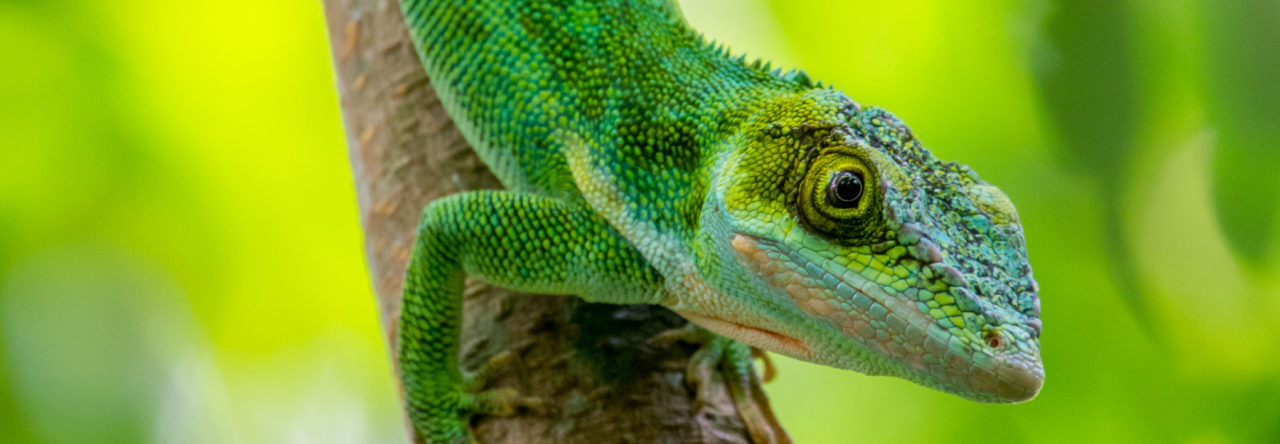
Sperm of Anolis sagrei. Picture by Ariel Kahrl.
Anyone who has worked with anoles in the field can tell you that during the breeding season, you can see these lizards mating pretty frequently. In fact, brown anoles are so promiscuous they have one of the highest rates of multiple paternity in vertebrates! In addition to this, females can store sperm for months at a time, which suggests that this group probably experiences a lot of sperm competition. We know from other groups that sperm competition can lead to the evolution of lots of interesting and diverse traits, but we know relatively little about how sperm competition targets these traits in anoles (though see Klaczko et al’s 2015 paper about the rate of genital evolution in anoles).
Some of our previous work has shown that sperm size and sperm count are correlated with reproductive success in the lab, but it’s unclear how these important components of male reproductive success evolve. To explore this, we collected data on testis size (as a proxy for sperm production/sperm count), and sperm morphology (measuring the sperm head, midpiece and tail) for 26 species of anoles. We hypothesized that if testis size had a higher rate of evolution than sperm morphology, sperm competition likely targets sperm count over sperm size.
In fact, we found that testis size evolves much faster than sperm morphology, confirming our hypothesis. We also found that within the sperm, the midpiece (which contains the mitochondria) evolves 2-3 times faster than the rest of the sperm cell. This is maybe unsurprising, considering that the midpiece size is correlated with reproductive success in brown anoles, and is often associated with sperm longevity and sperm velocity in other species.
You can read the pre-print from JEB below!
Kahrl, AF, Johnson, MA, and Cox, RM. 2019.Rapid evolution of testis size relative to sperm morphology suggests that postcopulatory selection targets sperm number in Anolis lizards. Journal of Evolutionary Biology.
https://onlinelibrary.wiley.com/doi/abs/10.1111/jeb.13414
- Testis Size Evolves Faster than Sperm Size across Anoles - January 27, 2019
- SICB 2018: Local density of conspecifics affects sperm phenotypes in wild Anolis sagrei lizards - January 10, 2018
- SICB 2018: Copulation rates in anole lizards are correlated with muscle damage - January 7, 2018



Leave a Reply